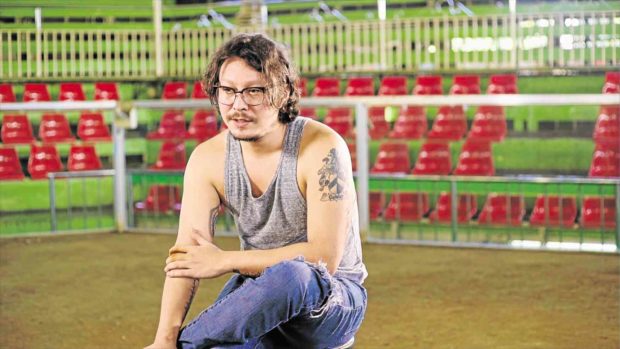Without a doubt, actor Baron Geisler felt strongly about the message of his latest film, “Beastmode,” a documentary that had taken him on a wild two-year journey—complete with public meltdowns, bar brawls and a much-ballyhooed mixed martial arts match with nemesis Kiko Matos.
“I believe in our mission,” he told the Inquirer in a phone interview. “We want people to be aware of what’s going on … not to believe everything they see right away. Before they become keyboard warriors, they should do research first.”
Baron knows very well the perils of online vilification. After all, he has become a favorite whipping boy of netizens, largely because of the web of controversies he regularly gets entangled in.
The actor, whose recent altercations with relatives were much-chronicled in the media, is currently confined in a rehabilitation center in Cebu.
Although he understood the concept behind the “social experiment,” making the documentary was still quite stressful, Baron conceded. “We were told not to break rules. We had to sign a contract. We needed to make the media believe that it was for real.”
He called the film a “mockumentary.” “I was mocking myself. I looked at it as a higher level of performance art. I was being a badass.”
He recalled that he had used Being—an acting technique “that could be dangerous.”
“It took a toll on me, physically and mentally,” Geisler acknowledged.
As coup de grace, the documentary almost got shelved due to financing woes. “I felt so bad. We needed to pay for the licensing rights to the news videos, for example.”
Baron was worried that all their efforts would go down the drain. “If we fail to screen it, people might think I was crazy all along. Or I would be dismissed as the ‘boy who cried wolf.’”
He had seen the rushes and admitted that he felt like “cringing” as he watched his shenanigans onscreen. “It looked like a joke.”
But it seemed making the audience uncomfortable was his measure of success, too. In this dangerous time of dissent and discord, “people should cringe at the truth we are presenting. There are far more important stories that the media should highlight and not suppress.”
He was so invested in the project that he willingly shelled out his own “rainy-day” savings to keep things going. “I was given ‘associate producer’ credit in the film.”
“Working with Baron was challenging, but rewarding,” producer Banuk Amante said.
The director Manuel Mesina III described Baron as an “intelligent” actor. “But the challenge was that they were not really acting in the docu. What we tried to capture was the process … the social experiment.”
The documentarian explained that his goal was to shed light on the issues of “violence and manipulation.” “We aim to provoke and disturb the viewers.”
“We want to get our message across,” Baron pointed out. “We hope to show the film nationwide, in different schools … and maybe abroad.”
In the meantime, an intimate screening is set tomorrow, 5:30 p.m. at Cinema Centenario in Quezon City—with an open forum to be moderated by broadcast journalist Atom Araullo.
On July 27 (8 p.m.), Baron will attend a fundraising screening at the UP Cine Adarna. “My program director at the rehab facility gave me permission. I will be accompanied by a recovery coach.”
Beyond the documentary, he is focusing on his own well-being for now.
“I need to fix a lot of things in my life … and in my head,” Baron owned up. “My lifestyle then was ridiculously harmful to me and other people.”
He has been at Yap Wellness Center in Cebu for the past four months. “It was originally a three-month program, but I suggested to my recovery coach to add three more months.”
He is set to graduate on Sept. 22, he volunteered.
